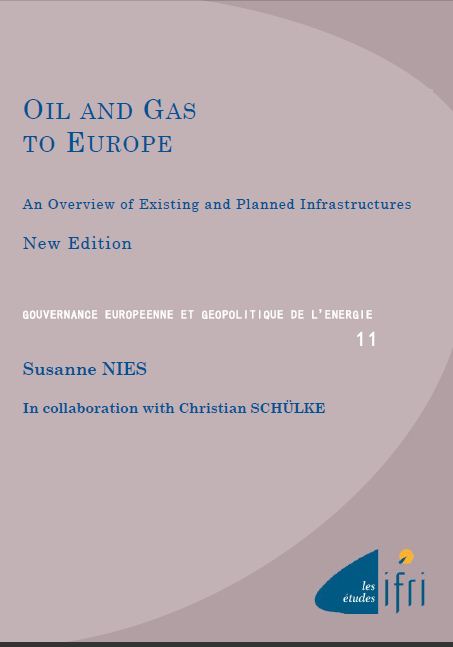Oil and Gas Delivery to Europe: An Overview of Existing and Planned Infrastructures. New Edition

The European Union’s hydrocarbon energy supply depends heavily on imports. While the European Commission has recommended diversifying and increasing domestic resources, notably with renewable resources which should grow to 20% by 2020, dependence on hydrocarbon imports will remain not only substantial, but will increase.
Particular attention must thus be paid to the question of transportation, and also to the countries of origin, investments in infrastructure, their protection, relations with transit countries, ‘competing consumers" (notably China and emerging countries, but also the United States), energy wastefulness in producing countries, and, finally, price. Security of supply depends on adequate and reliable infrastructure, and must always be thought of in the long term.
This entirely revised edition of the fourth study conducted by the European Governance and Geopolitics of Energy program at Ifri includes discussions about pipeline routes and potential outputs, their current use and financial requirements for transportation, ongoing projects and those planned for the future, their cost, their financing, and their probable operational start-up date. While all infrastructures are necessarily included (including Norway, the United Kingdom, and North Africa), particular attention is paid to transportation infrastructure that connects Europe with Russia and the former Soviet Union (Central Asia, Caspian Sea). It will be immediately clear that the issue of gas is dominant in current discussions.

Available in:
Regions and themes
ISBN / ISSN
Share
Download the full analysis
This page contains only a summary of our work. If you would like to have access to all the information from our research on the subject, you can download the full version in PDF format.
Oil and Gas Delivery to Europe: An Overview of Existing and Planned Infrastructures. New Edition
Related centers and programs
Discover our other research centers and programsFind out more
Discover all our analysesAI, Data Centers and Energy Demand: Reassessing and Exploring the Trends
The information and communication technologies sector today accounts for 9% of global electricity consumption, data centers for 1-1.3%, and artificial intelligence (AI) for less than 0.2%. The growing energy demands of cloud services first, and now AI workloads (10% of today’s data centers electricity demand), have exacerbated this trend. In the future, hyperscale data centers will gain shares amongst all kinds of data centers and AI will probably account for around 20% of data centers electricity demand by 2030.
Unlocking India’s Energy Transition: Addressing Grid Flexibility Challenges and Solutions
India is rapidly scaling up its renewable energy (RE) capacity, adding 15–20 GW annually, but the ambitious goal of 500 GW of non-fossil capacity by 2030 is at risk unless the pace accelerates.
Europe’s Black Mass Evasion: From Black Box to Strategic Recycling
EV batteries recycling is a building block for boosting the European Union (EU)’s strategic autonomy in the field of critical raw minerals (CRM) value chains. Yet, recent evolutions in the European EV value chain, marked by cancellations or postponements of projects, are raising the alarm on the prospects of the battery recycling industry in Europe.

The New Geopolitics of Energy
Following the dramatic floods in Valencia, and as COP29 opens in Baku, climate change is forcing us to closely reexamine the pace—and the stumbling blocks—of the energy transition.












